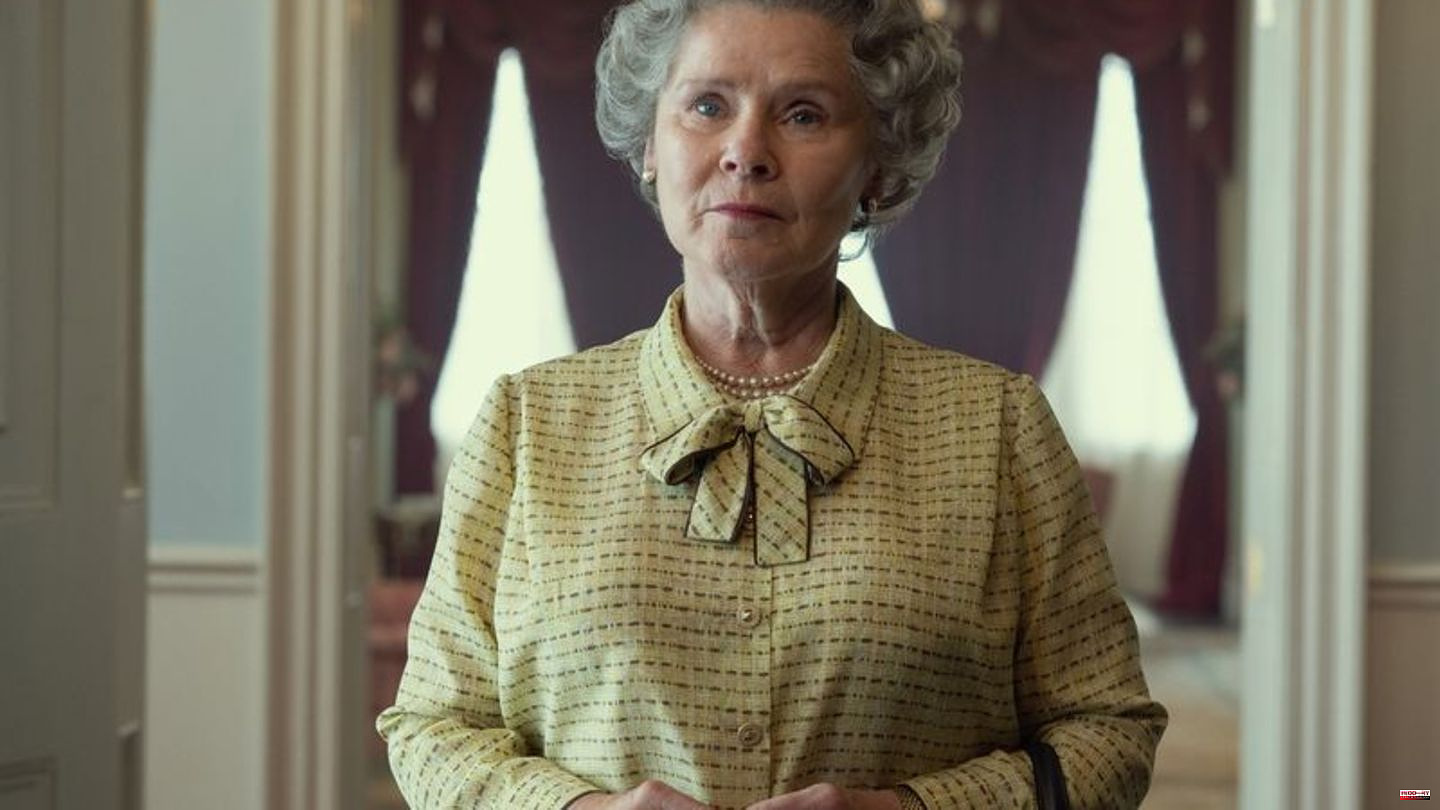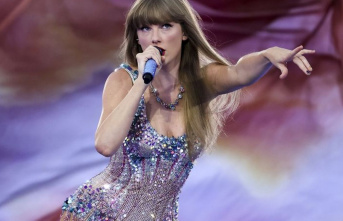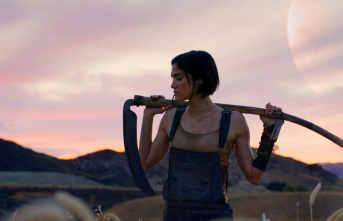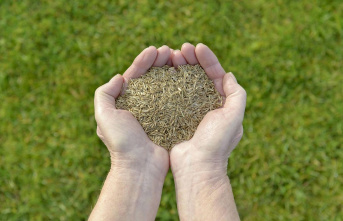Prince Charles and Princess Diana look at each other. "Shall we give them some of the old magic?" Nods of approval, a wink, then the couple spins over the railing of a lavish yacht, waves to the photographers, and turtles for the world's cameras. But behind the scenes, the harmony is already crumbling considerably, as can be seen directly in the first new episode of the Netflix series "The Crown".
The fifth season, which can be seen from November 9th, is set in the 90s and is dedicated to the most inglorious chapters in the life story of the new British king Charles III.
"It's unfortunate for the king and queen that just at the start of his reign, 'The Crown' happened to arrive in those years and 'raises the 'Charles Diana Camilla theme'," says royal expert Craig Prescott, who teaches constitutional law at the university in Bangor, Wales, in an interview with the German Press Agency.
Diana's escape from the golden cage
As at the beginning of the third season, the series is once again starting with new actors in order to take account of the aging of the protagonists. 66-year-old Imelda Staunton succeeds Olivia Colman and Claire Foy as Queen Elizabeth II and paints a compelling picture of the ever-dutiful monarch.
Charles, now embodied by Dominic West (53), does not last long in the holiday scene in the sun-drenched maritime idyll with his wife and children. Due to an alleged scheduling conflict, the family has to cut short their time on board the yacht. Princess Diana (Elizabeth Debicki) wipes a tear from her face on the plane home, her young son William looks at her pitifully and shakes her hand. Her suffering, her escape from the golden cage is the focus of the new season.
But back from vacation, a survey by the "Sunday Times" first determined the debate: More than half of Britons therefore find Queen Elizabeth to be old-fashioned and unrealistic, her son Charles did significantly better before the Diana tragedy. Which has him thinking out loud that his mother could step down and make room for him - even when meeting then-Conservative Prime Minister John Major.
"The Crown" takes a lot of artistic liberties
What is fact and what is fiction leaves Netflix open. Although the streaming giant resisted the demand to put a corresponding disclaimer at the beginning of its episodes, it never claimed to create a documentary series with "The Crown". The fact that the plot of the series is closely linked to the historical events, but leaves its artistic and fictional freedom, makes it difficult for non-royal experts to distinguish at times.
While most Brits are fairly familiar with the royal events of the 1990s due to the intensive reporting, it is likely to be the first time for younger target groups abroad that they are dealing more intensively with the dramatic decade in the Windsor house. "Perhaps the effect is being overestimated in Britain," says Prescott. "He could be bigger abroad."
Unlike British broadcasters, which are otherwise responsible for the majority of royal television formats, Prescott believes Netflix has greater freedom. "The broadcasters depend on a good relationship with the palace for their reporting. Netflix doesn't care," says the expert. The royal family has no influence or control, but is dependent on Netflix.
Ex-Prime Minister John Major reacted angrily
The screenwriters cleverly play with parallels, but also sharp contrasts to the present: Charles on the throne? Could hardly be more up-to-date, but as we now know, it only became reality around 30 years later. The Queen unpopular? Couldn't be further from the reality that just recently hundreds of thousands queued for days and nights on the banks of the Thames to pay their last respects to their monarch.
Even before the start of the new season, it became clear that there was some fantasy involved in the meeting between Charles and John Major. Former Prime Minister John Major, who ruled Britain from 1990 to 1997, described the series in The Times as "damaging and malicious fiction". He denies that he spoke critically about the Royals or had a conspiratorial meeting with Charles.
It remains to be seen whether the palace itself - especially under King Charles, who is considered to be direct - will also straighten things out that flicker through the world via "The Crown". "As we can see from John Major, there are many others who like to do that," says Royal expert Prescott. Perhaps the palace does not have to express itself at all to draw attention to one or the other fictional volte by screenwriter Peter Morgan.












